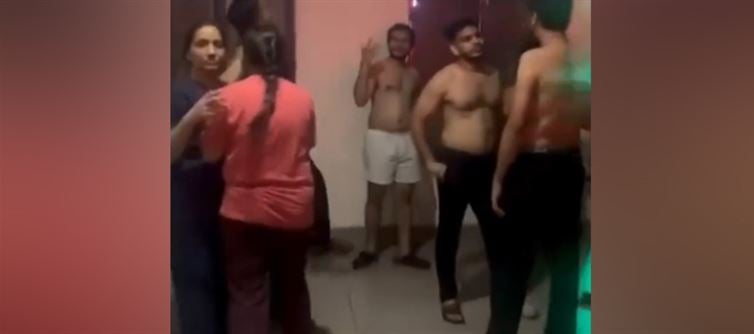
🔥THE NIGHT THAT WENT TOO FAR
A late-night hostel gathering inside a reputed medical college in dehradun spiraled into a viral controversy, raising serious concerns about professional behaviour, discipline, and institutional culture among medical trainees. What should have been a quiet academic residence allegedly turned into a party zone, complete with loud music, dancing, and heated responses when authorities intervened. The aftermath has led to disciplinary action, fines, and a deeper conversation about ethics, accountability, and professional identity.
💥 1. A Hostel Is Not A Nightclub — It’s A Training Ground for Life-Saving Professionals
Hostels in medical institutions are not just residential accommodations — they are incubators for discipline, dedication, and mental conditioning needed to handle real-world medical emergencies. Turning them into late-night party venues blurs the lines between professional responsibility and reckless self-indulgence.
⚖️ 2. Professional Identity Isn’t Seasonal — It Exists On & Off Duty
The white coat isn’t a costume that can be worn in the hospital and tossed aside in the hostel. Medical training demands consistent emotional maturity, behavioural discipline, and situational awareness. A moment of irresponsibility in private can translate into poor judgment in public.
🧨 3. Defiance Toward Authority Signals A Deeper Cultural Problem
Reports suggest that there was resistance and non-compliance when authorities intervened.
In high-stakes professions like medicine, attitude is not optional — it is a qualifying parameter.
A doctor who cannot respect institutional authority may struggle with:
• patient consent protocols
• emergency chain-of-command
• crisis discipline
• ethical accountability
🚨 4. Administrative Action Was Not Overreaction — It Was Damage Control
Eviction from the hostel and monetary penalty were not punishments for enjoyment — they were corrective boundaries reinforcing institutional expectations. Professional education is not just about degrees; it is behavioural conditioning. Actions have consequences because patients, not textbooks, are the final exam.
🔍 5. This Is Not About ‘Youthful Fun’ — It’s About Public Trust
Doctors are among the few professionals who are given instant trust, instant access, and instant authority by society.
Trust is built over decades, but can be shaken in one viral moment.
The medical community does not just heal bodies — it holds public faith; such incidents risk marginal cracks in that foundation.
🧩 6. Recreation Is Not the Enemy — Lack of Boundaries Is
Nobody demands that medical students live like monks — burnout is real, stress is real, and recreation is healthy.
But it must be:
✔ Time-bounded
✔ Space-appropriate
✔ Profession-respectful
✔ Rule-compliant
Fun that damages professional identity is not freedom — it is self-sabotage.
🔚 FINAL MIC-DROP
Doctors don’t just graduate with degrees — they graduate with society’s trust.
When the training ground loses discipline, the future operating room loses safety.
This incident shouldn’t merely be punished — it should become a case study in medical ethics classrooms nationwide.
Being a doctor begins long before the first patient arrives.




 click and follow Indiaherald WhatsApp channel
click and follow Indiaherald WhatsApp channel